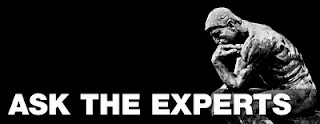This post just picks up one small point: the treatment of expert witnesses. In this trial, as in many, a great deal of attention was paid to the nature of the addressee of the patent of which the validity was in contention and to the expert evidence that was to establish their state of knowledge and understanding. Arnold J handled these issues like this at [81] to [82]:
"... there is no fundamental dispute as to the identity of the skilled team to whom the Patent is addressed, but there are certain differences as to the level of expertise of some members. Broadly speaking, it is agreed that the skilled team would comprise the following:Regarding the experts put forward by the parties the judge observed at [85] to [86]:
i) Someone with an interest in the treatment of MS. This person is likely to be a clinician by training, although a clinical qualification may not be essential. ...
ii) Someone with experience in assessing the adverse effects of drugs in both in vivo tests such as the mouse lethality assay and in vitro tests .... This person is likely to be a toxicologist by training, although a toxicological qualification may not be essential. ...
iii) A synthetic chemist with expertise in synthesising polydisperse polymers.
iv) An analytical chemist with expertise in amino acid analysis.
v) An analytical chemist with expertise in SEC".
"The expert witnesses called by the parties do not precisely correspond to the five disciplines I have identified as comprising the skilled team [ahead of trial it might not be fully possible for the judge to identify with certainty the components of a skilled team but, in an ideal world, it would be great if the parties could go away and choose their experts in accordance with a list of disciplines identified before trial, at the case management stage]. Furthermore, there is not a precise correspondence between Mylan's witnesses and the Defendants' witnesses, in particular since one of the Defendants' witnesses did double duty as discussed below. Yet further, there is some overlap between some of Mylan's witnesses. Still further, both counsel submitted that a witness called by the other side possessed greater expertise on a topic than another witness called by that side. Nevertheless, for convenience I will put the experts into pairs based on the skilled team....
... a general point which is convenient to note here is that a number of the experts had previously given evidence in the US proceedings. Both counsel submitted that the other side's witnesses who had done so had become entrenched in their views as a result. I think that there is some truth in this, and I have borne this factor in mind in assessing the relevant witnesses' evidence [again, in an ideal world, it would be good if both parties had to share a single expert on each issue that required expert evidence, as happens in some other areas of civil litigation, but it is generally insisted by patent lawyers that this is both impossible and workable. It would be good to revisit this issue]".

No comments:
Post a Comment